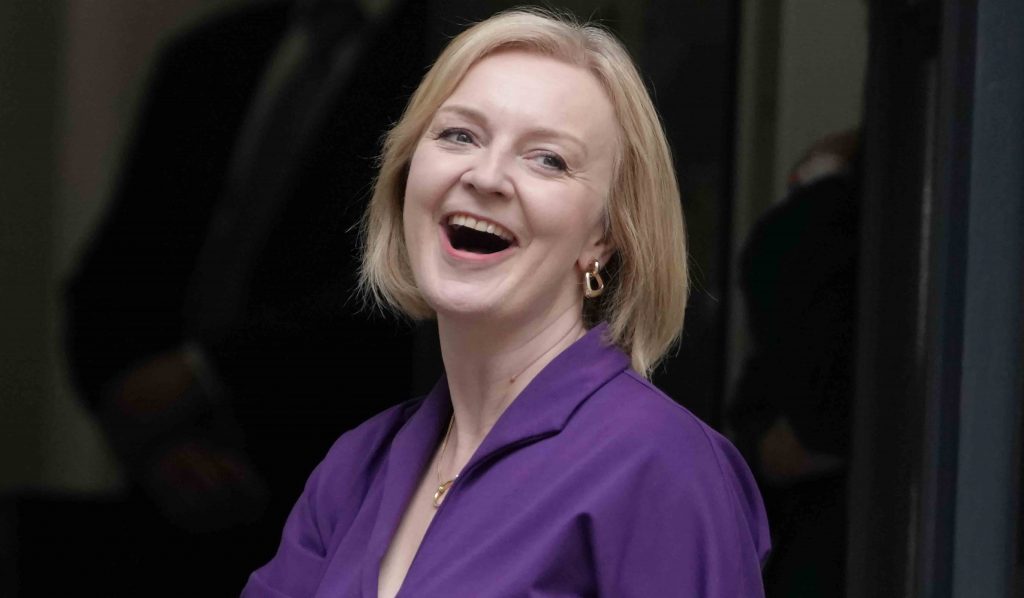London: Newly-elected Conservative Party leader and UK Prime Minister in-waiting Liz Truss is among the senior British politicians known for championing deeper India-UK strategic and economic ties. Liz Truss describes them as a ‘sweet spot’ of global trade dynamics.
After all, it was Truss as International Trade Secretary who signed on the India-UK Enhanced Trade Partnership (ETP) for the Boris Johnson-led government in May last year, which marked the starting point of the ongoing free trade agreement (FTA) negotiations.
The 47-year-old senior Cabinet minister made visits to India and held virtual talks with Commerce Minister Piyush Goyal, during which she described India as a ‘big, major opportunity’. “I see the UK and India in a sweet spot of the trade dynamics that are building up,” said Truss soon after signing the ETP.
After her promotion as Foreign Secretary, Truss handed over the baton at the Department for International Trade (DIT) to Anne Marie-Trevelyan, who is widely expected to continue in her role as International Trade Secretary and take forward the UK-India FTA talks.
More recently on the campaign trail in her contest with former chancellor Rishi Sunak to be elected Tory leader, Truss reaffirmed that she remains ‘very, very committed’ to strengthen bilateral ties at a hustings event of the party’s Conservative Friends of India (CFIN) diaspora group.
Truss also committed herself to getting the India-UK FTA done, preferably by Diwali – the deadline set by predecessor Boris Johnson – but ‘definitely by the end of the year’. The Prime Minister in-waiting has repeatedly flagged enhanced defence and security cooperation with the Indo-Pacific region in order to meet her ‘network of liberty’ goals as a counter-balance to the aggression of Russia and China.
In a key foreign policy speech earlier this year, Truss declared: “Russia and China are working together more and more, as they strive to set the standards in technologies like artificial intelligence, assert their dominance over the Western Pacific through joint military exercises and in space through closer ties.
“China and Russia have spotted an ideological vacuum and they’re rushing to fill it. They are emboldened in a way we haven’t seen since the Cold War. As freedom-loving democracies we must rise up to face down these threats. As well as NATO we are working with partners like Australia, India, Japan, Indonesia and Israel to build a global network of liberty.”
As Foreign Secretary, she has been at the forefront of the UK’s response to the Russia-Ukraine conflict, imposing tough sanctions and cracking down on Russian assets in the UK.
It is this crisis that marks what has been described as one of the worst in-trays that any new British Prime Minister has faced, given the spiralling energy costs that have triggered a cost-of-living crisis in the UK largely as a result of the ongoing conflict in Europe.
“Within one week I will make sure there is an announcement on how we are going to deal with the issue of energy bills, and of long-term supply, to put this country on the right footing for winter,” Truss said in a recent interview.
Some tough measures are expected within days, with analysts expecting her to adopt some of rival Sunak’s plans of help targeted at the most vulnerable households. However, it is her pledge to reverse the former Chancellor’s tax hike that would make it unlikely for the two finalists to work together in a new Cabinet.
While Sunak maintained that tax cuts are not the answer to get a grip on UK’s soaring inflation, Truss stood firm on her low tax pledge throughout the campaign – a move that clearly paid off with the historically low tax favouring Conservative Party base.
While UK-born Sunak relied on his personal immigrant story and Indian heritage in a slick campaign run, Truss repeatedly admitted that she may not be the slickest of candidates but had a clear vision of how to ‘get the job done’. Ironically, both candidates harked back to Tory grandee Margaret Thatcher as their inspiration.
But whatever her background, the MP for South West Norfolk managed to win over the Tory membership base, which had her as a clear frontrunner since she was elected as a finalist by her party colleagues.
Born in Oxford to a maths professor father and nurse teacher mother, Truss grew up and lived in different parts of the UK, including Paisley in Scotland and Leeds, Kidderminster and London – something she capitalised on during the campaign as her commitment to all parts of the country if elected leader.
Truss is married to accountant Hugh O’Leary with two teenage daughters.

